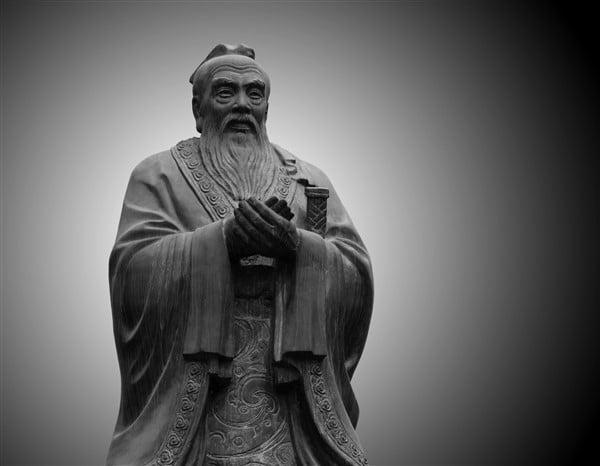Confucian Thought on People

Confucius, also known as Kongzi in Chinese, lived during 551-479BC in what is now Shandong Province in mainland China. He was not only a great educator, philosopher but also a key influencer on the essence of the modern Chinese philosophy.
Analects: Main Teachings of Confucius
Confucius’ teachings, sayings and life stories are recorded by his disciples and their students in The Analects, also known as Lunyu.
Over 2000 years later, Analects is now being studied and quoted through the world across all industries. To this day, the Analects is still one of the most widely read and studied books in China, and it continues to have a strong influence on Chinese values today.
Ren and the Golden Rule
Ren and Li are two principle concepts of Confucianism.
What is ren? Confucius simply explains in the Analects as “Love of people”. It also “begins with the love of one’s parents”.
As for love for other people other than your parents, Confucius explained: “Do not do toward others anything you would not want to be done to you.” This is now commonly known as the Golden Rule of Confucius.
Modern scholars believe ren represents an all-encompassing sense of virtue, which is the basis to grow into ethically well-cultivated men.
Li and the Five Basic Virtues of Confucianism
What is li? The Analects records how Confucius explains this: The purpose of li is to maintain harmonious human relationships. It further explains the details of li, which includes proper manner, rituals, customs and traditions that are considered norms or standards of an ideal Confucian society.
Confucius explains that it is not through the suppression of individual desires that we achieve a harmonious society, but rituals and norms should be established and taught to reconcile people desires. Only so, will people carry themselves with dignity and demonstrate the highest degree of integrity in all things.
Including Li, the following are the Five Virtues of Confucianism:
- Ren: love and respect of people, benevolence
- Li: proper manner, rituals, customs and traditions
- Yi: justice and righteousness
- Zhi: knowledge and wisdom
- Xin: integrity and fidelity

An Educator, A Giver
In the time that Confucius lived, education was exclusive to nobility. Confucius was the first person in ancient Chinese history that offered free education to others.
It is widely believed that Confucius has taught over 3000 disciples in his life, with 72 of them mastered his philosophy and excelled in the “Six Arts”.
The Six Arts
The Six Arts, which already existed before Confucianism, are:
- Ritual
- Music
- Archery
- Driving (Carriage)
- Calligraphy
- Mathematics
Confucius’ Impact on Modern Philosophy
Confucius believed that all people should have a sound character with an uplifting mindset. He encouraged his disciples to be givers and contributor to their society and take on more social responsibility.
“Simply knowing the highest standards of virtue is not as good as setting it as one’s goal. Setting it as one’s goal is not as good as enjoying the practice of it.”
Modern scholars believe Confucius to be the pioneer in thinking that increase one’s knowledge is not the ultimate goal, but the process of broadening their perspective and live spiritually is. This builds the foundation of the point of view on life in modern Chinese philosophy.
Famous Quotes by Confucius
Learning without thought is labor lost; thought without learning is perilous. (学而不思则罔,思而不学则殆。)
When I walk with two men, they may serve me as my teachers. I will select their good qualities and follow them, their bad qualities and avoid them. (三人行,必有我师焉。择其善者而从之,其不善者而改之。)
When you know a thing, to hold that you know it; and when you do not know a thing, to allow that you do not know it – this is knowledge. (知之为知之,不知为不知,是知也。)